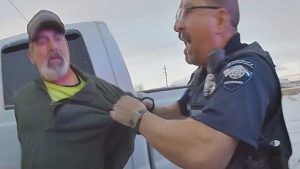by JF Mercury
Huerfano- "What news, Lord Bardolph? Every minute now should be the father of some stratagem. The times are wild"- Northumberland, in King Henry IV
What is a newspaper? Wait – let′s back up a bit more: what is news, and why do people want it?
News is, quite simply, information about the world around us that we seek out to guide our lives and actions. In a rapidly changing world, timely access to relevant news is vital for success, even survival at times. Whether it′s the fate of Prince Henry, the morning′s tornado watch, or simply the opening of a new coffee shop downtown, we compulsively seek out information about how our world has changed, and use it to decide "What now?"
This "news instinct" has been a part of every society since the dawn of civilization; remember poor Pheidippides the messenger, immortalized for running the 26 miles from Marathon to Athens to bring news that Persia had been defeated – and dropping dead on the spot.
The modern newspaper was born in Strasbourg in 1605 at the hands of Johann Carolus. He had assembled a network of paid correspondents for relaying news, but producing the weekly handwritten letters of "news advice" he sold to a small circle subscribers took too long to copy. To get the word out faster, and to reach a broader audience, he threw his resources into a relatively new technology for mass communication: the printing press. Four hundred years later, we have wire services and the London Times on our doorstep, but other than scale and speed, little has actually changed in the world of the newspaper since then.
At the dawn of the 21st century, newspapers are again faced with a new technology: the internet. Much as the printing press freed Carolus from hand-copying his newsletters one sheet at a time, the internet can free modern publishers from other traditional limitations. No matter how much news there is, a traditional publisher has only so many column-inches of newsprint in which to present it, and his editors must weigh, select and cut the news of the day to fit. Worse, the editors′ have no choice but to present the same ten pages of news to every one of their subscribers, no matter how far-flung or diverse their readership is. News of interest to farmers competes with news of interest to bankers. Stories of vital importance to a small number of readers must compete with stories of passing interest to all. No matter how skillful the editor is, someone always loses out.
Freed from the physical constraints of newsprint, a digital publisher can serve all. He can realize the New York Times′ aspiration to print "all the news that′s fit to print." Even better, a digital newspaper is freed from the traditional one-size-fits-all model. Readers can subscribe to their areas of interest, unsubscribe to others, and even put a mark on the map saying "I live here," to receive the news they want about things that affect them. A house fire on Kansas Avenue? Might not make the press of a traditional paper, but if it′s next door to where I live, I want to know about it – right now. A digital newspaper can do that.
This highlights another important distinction of the digital world: News is news when it happens, and sometimes "right now" is important. In 1702, London′s Daily Courant brought the news cycle down to 24 hours, but that′s where it′s stayed with newspapers since then. The economies of newsprint simply don′t allow publishing and distributing updates to a story as new details emerge. Reporters file their stories by 6 p.m., the editors commit by 8, and the next day′s edition is "put to bed" by midnight. That house fire on Kansas Avenue? Even if it made the paper, I′d find out about it the next morning. Or when I got home that night, as I sifted through the charred timbers.
The internet brings makes it possible to deliver news that′s "right here" and "right now". But it holds the promise of something even greater. While ownership of a printing press allowed publishers to quickly distribute their news to a broad audience, the internet has turned this into a two-way street. Digital newspapers allow readers to add their eye-witness accounts, their photos and their expertise: anyone with information to share can participate, providing news when they have it, getting news when they need it. If you have information about a traffic accident on I-25, a water-use initiative in the state Senate, or even an opinion about that new coffee shop downtown, you can share it with others who want to know – or need to know. Across the world, citizen reporters have already begun reshaping the world of journalism.
This is more than a mere perk of technology. The framers of our constitution knew that an informed and engaged populace was the best defense of democracy against tyranny. Our country was conceived at the printing presses of Thomas Paine, Sam Adams and Benjamin Franklin. With the spread of the internet, democracy has a new ally: not only does every person have a vote, every person has a voice. But saving democracy is pretty grand stuff to start out with, so let′s take a minute or two to imagine how a digital newspaper might directly affect you. When you wake up in the morning and pop open your browser, of course you′d see the top headlines for national, international, and local news. Except for that stuff about Britney Spears, since you′ve told the system that you′re tired of hearing about her. That story about water rights bill has fallen off the front page in most places, but you were interested in it, so the system will keep you informed of the latest developments there until you tell it to stop.
Of course you′ve got the scores and stats from your favorite teams on the home page, along with links to video highlights from the game, in case you missed it last night. There′s also a discussion board linked to the game, where several of the more vocal fans are getting a lesson in Monday morning quarterbacking from the assistant coach.
Your "morning edition" has a personalized traffic alert: weather and road construction along Hwy 160 mean that your commute up to La Veta today is going to be especially slow. If only you could telecommute!
Looking for some good news, you hit the entertainment section. There′s an Italian-American family drama playing at the SCR Theater down in Trinidad (yes, it knows you like theater), and you see that it′s gotten great reviews not only from the paper′s roving critic, but from a couple of other theater-goers on your "trusted" list. And to really set the mood for the play, wouldn′t it be great to find an Italian restaurant near the theater to have dinner? A few clicks, and you′ve found one (checked the reviews, of course, had a look at the decor, and verified that they′ve got gelato on the dessert menu. You love gelato).
But it′s time to go to work, and your carpool ride (found via the online commuter listings) is pulling up outside. You climb in and rehash the Broncos game as the car makes its way through traffic. He thinks they should′ve taken Cutler out after the first quarter, but that′s just what the fans online were arguing about – you pull out your cell phone and grab a "mobile" version of the online discussion to fill him in.
Traffic seems to be moving faster than you expected – apparently the roadwork has been canceled due to the freeze. It′s time to do your part as a citizen reporter now. You flip the phone back open to punch in a quick on-the-spot traffic report and let others know the good news. It′ll be shared with other commuters within a few minutes, helping them plan their day.
By the time you get dropped off at the office, you′ve caught up on email, set up tickets for the show tonight, and informed yourself about the issues that surround your life. You′ve chased down a few more details on the water rights bill by following links from the mobile version of your news. You′ve forwarded the Denver Post article to your circle of friends and bookmarked the CSPAN video clips to watch when you′re not riding in a bouncing car. As you climb the steps to your office, you wonder – how did people ever keep themselves informed before this?
We realize that all these changes aren′t going to happen tomorrow, and aren′t going to happen exactly the way we imagine them. Carolus knew that producing his news letter on a printing press was a good idea, but he had no idea just how it would change the world.
We feel the same way about bringing the Huerfano Journal to the internet: we know it′s a good idea, but we′re just starting to see the possibilities that lie ahead on this journey to the future of what a newspaper can really be. There will be bumps and hiccups along the way as we figure things out, but we′re glad to have you coming along with us.




